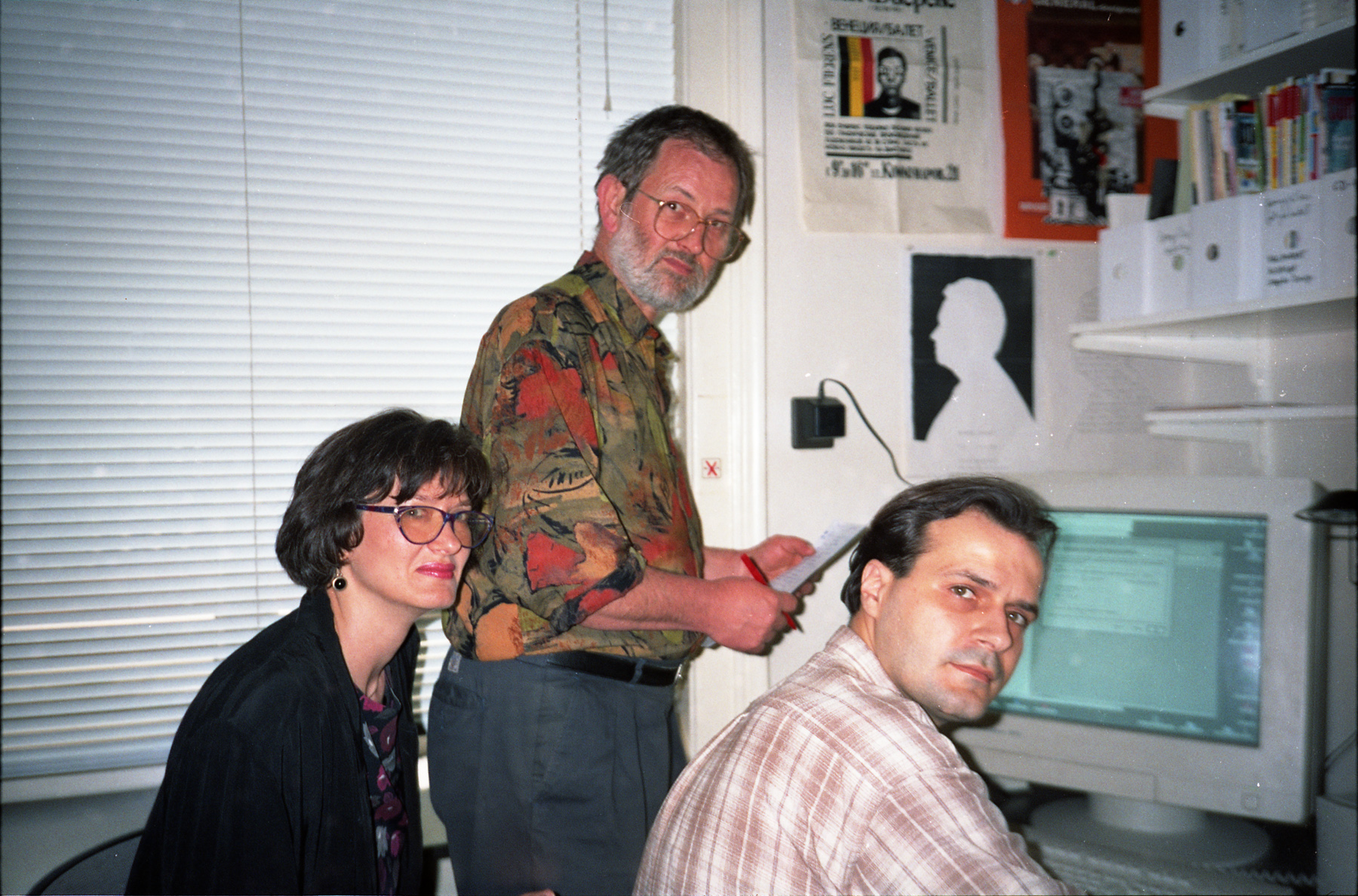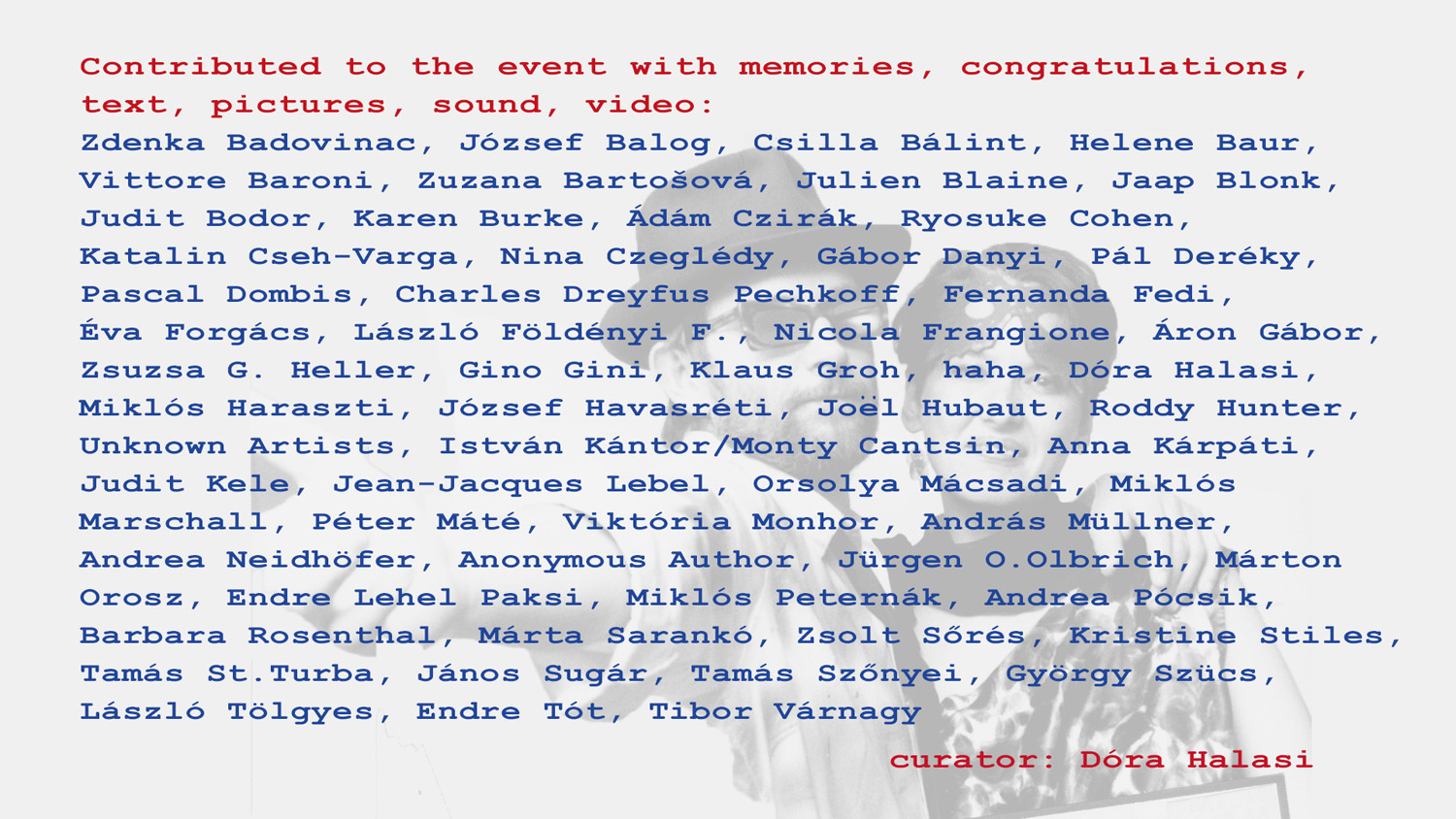Birthday messages and memories on the occasion of the 70th birthday of Júlia Klaniczay, co-founder of Artpool
Orsolya Mácsadi

Júlia Klaniczay, György Galántai, and László Tölgyes at Artpool while creating the Ray Johnson website, 1997
“The Woman Behind Artpool”
I became acquainted with Júlia Klaniczay in the second half of the nineties, when I joined the editing team of ARTPOOL’s digital infrastructure and website. For me, she was not only the managing director of the art research centre, but a role model too, as we had the chance to talk about all kinds of things and not just professional ones many times.
Now, 27 years later, one of the most exciting memories I have of her was when we discussed Hermann Broch’s novel The Death of Virgil. We talked about this once at the time: since hardly anybody knew the work (even among the erudite circles at the time), I was surprised by how much Júlia knew and how much she liked the author. Now I would like to greet Júlia with an excerpt from the exhibition and my experimental musical piece related to Broch’s work.
I chose the quote about laughter because Juli was always able to solve every problem in Artpool with her humour and humanity, even in the most difficult times. Perhaps I can say that even after all this time, her laughter is what I remember the most.
László András Tölgyes
(2024)
"the prerogative of gods and men was laughter,
springing first from that god who recognized himself,
springing dumbly-aware from his intuition,
from the intuition of his own destructibility,
from his intuition of the destructibility of the creation
in which, as a created and creative part, he prevailed
a god, growing by virtue of worldly wisdom toward self-perception and beyond it, back
to intuition,
whence arose laughter;
oh divine birth and human birth, oh death of the gods and of men,
oh their common beginning and ending, eternally implicated with each other,
oh, laughter stemmed from the knowledge that the gods are not divine,
from the knowledge common to gods and men
originating in that unquiet and disquietingly transparent
zone of communion
which was spanned demonically between this world and the one beyond,
in order that in its beclouded zone of demons
gods and men could and might encounter each other,
and though it were Zeus who struck up laughter in the circle of the male gods,
it was the human being who aroused the laughter of the gods,
just as
the laughter of men was aroused by the behavior of animals in the endless cycle of drolly serious recognition,
just as
the god found himself again in man and man found himself again in the animal,
in order that the animal might be raised through man to the god,
the god, however, returning to men through the animal,
god and man united in sorrow though overcome by laughter, because
this was the farcical game of that first sudden confusing of all spheres,
the game in the fatal rules of which
they had been caught,
the farce of the first sudden disclosure of native nearness,
the great farce of intermingling the spheres,
a vagary of the gods, a beauty-destroying, order-annulling game,
the divine in creation and the creature frightfully commingled,
and both cheerfully surrendered to chance,
the abomination and scorn of the knowing mother-goddess,
the sport and hazard of the gods who, delivered from perception and disdaining it,
were flooded by laughter"
(Hermann Broch: The Death of Virgil)
MUSIC
The Death of Virgil
- WATER - THE ARRIVAL
- FIRE - THE DESCENT
- EARTH - THE EXPECTATION
- AIR -THE HOMECOMING

